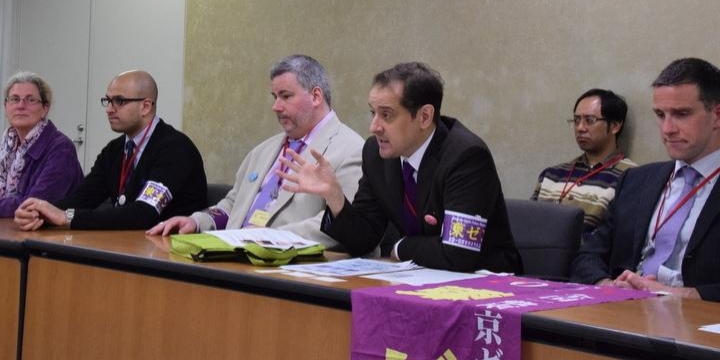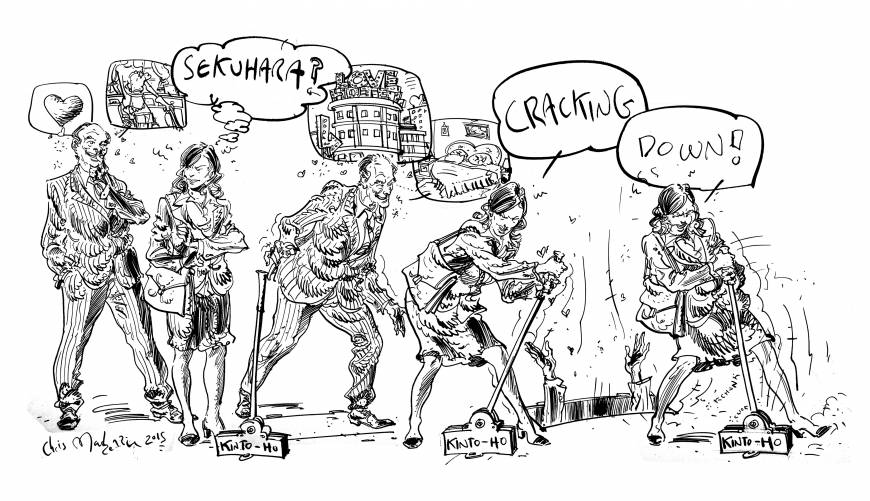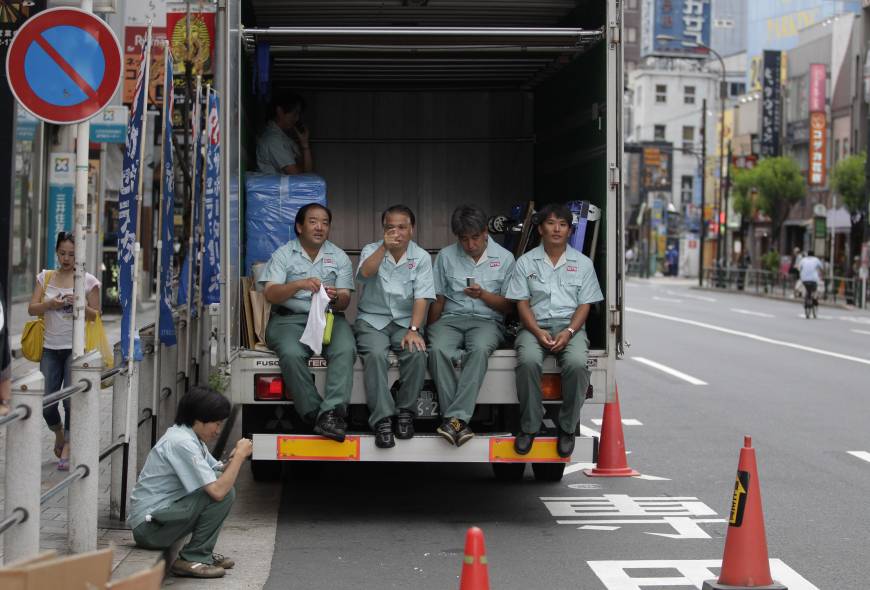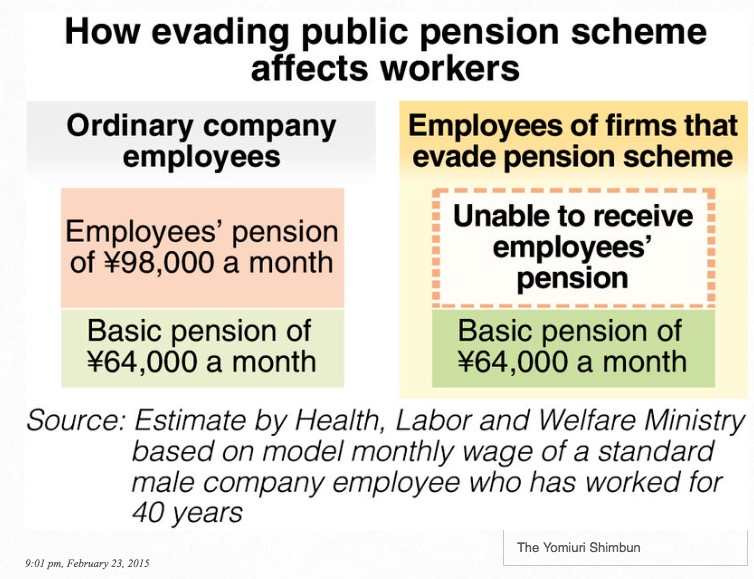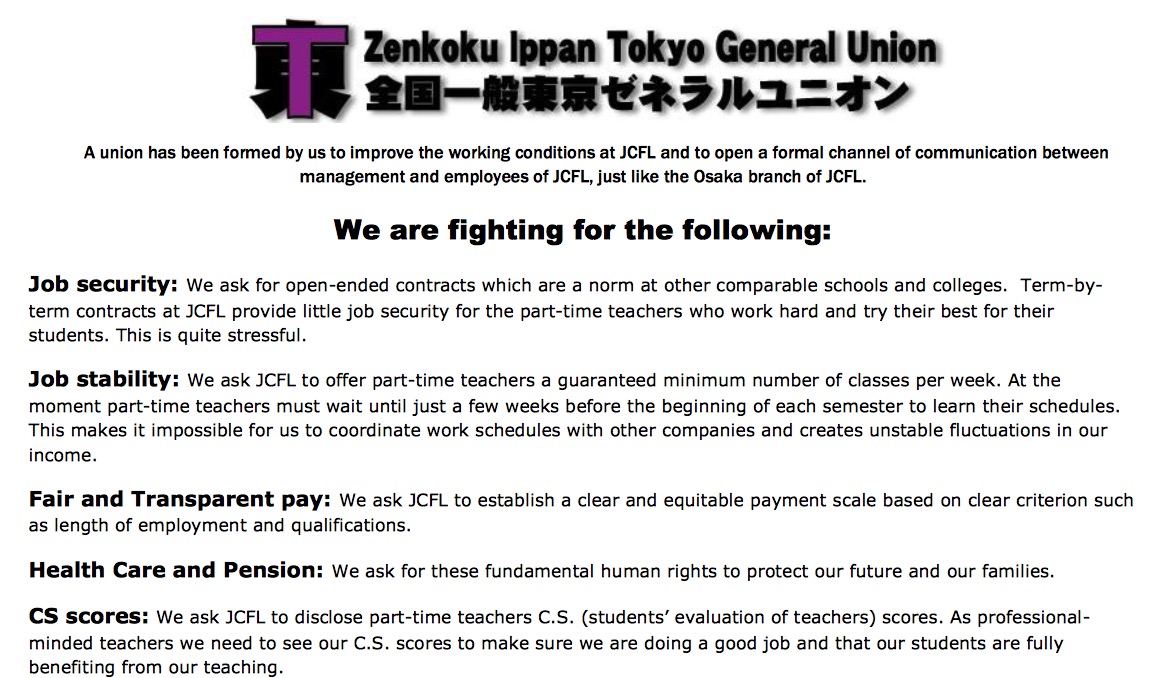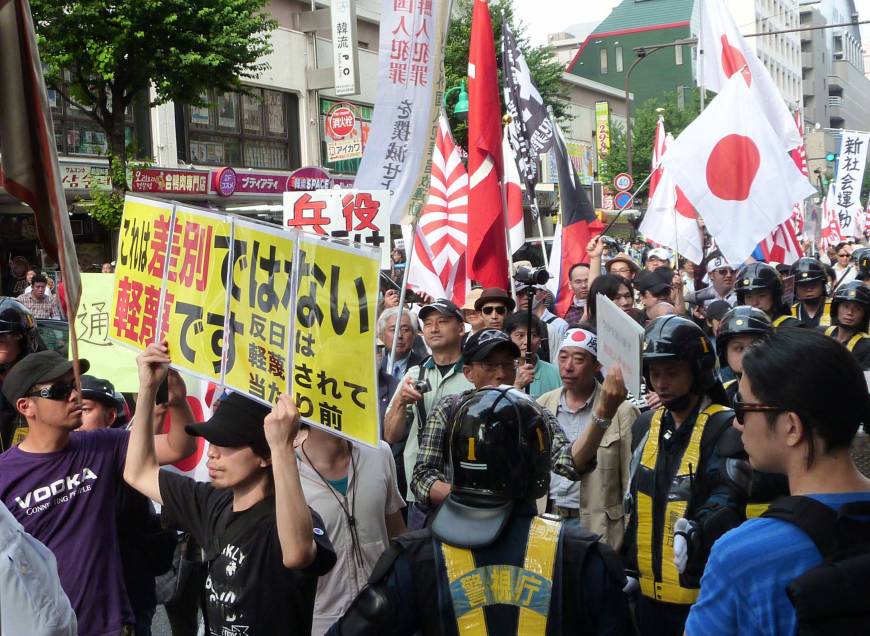I was hoping to start off the Year of the Sheep in a subdued, “sheepish” fashion, but bad news just keeps on coming. The ruling coalition is working hard to push through a bill to abolish overtime pay for high-income workers and another to deregulate temp-agency employment (haken). These bills will hurt the conditions of all workers in Japan, including foreigners.
Speaking of foreign workers, I’d like to focus this month on how labor laws in Japan handle the issue of nationality. But first, a detour:
Japanese society over the past couple of years has taken a dangerous turn toward extreme nationalism. My husband noted, “Since 2014, both NHK and the private broadcasters have changed how they refer to Japan, from using the word Nihon to Nippon.” The latter was used during World War II and is associated with jingoistic militarism. It also has a harsher consonant sound than “Nihon.”
Read more

